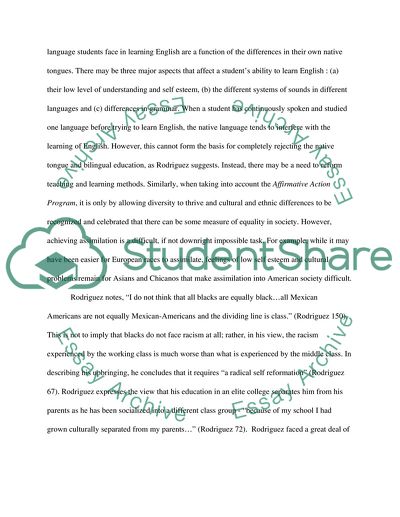Cite this document
(Language Question in Hunger of Memory by Richard Rodriguez Book Report/Review Example | Topics and Well Written Essays - 1750 words, n.d.)
Language Question in Hunger of Memory by Richard Rodriguez Book Report/Review Example | Topics and Well Written Essays - 1750 words. https://studentshare.org/culture/1541576-literacture-review
Language Question in Hunger of Memory by Richard Rodriguez Book Report/Review Example | Topics and Well Written Essays - 1750 words. https://studentshare.org/culture/1541576-literacture-review
(Language Question in Hunger of Memory by Richard Rodriguez Book Report/Review Example | Topics and Well Written Essays - 1750 Words)
Language Question in Hunger of Memory by Richard Rodriguez Book Report/Review Example | Topics and Well Written Essays - 1750 Words. https://studentshare.org/culture/1541576-literacture-review.
Language Question in Hunger of Memory by Richard Rodriguez Book Report/Review Example | Topics and Well Written Essays - 1750 Words. https://studentshare.org/culture/1541576-literacture-review.
“Language Question in Hunger of Memory by Richard Rodriguez Book Report/Review Example | Topics and Well Written Essays - 1750 Words”. https://studentshare.org/culture/1541576-literacture-review.


